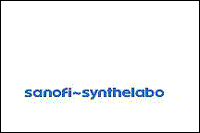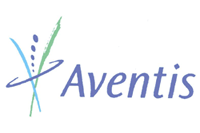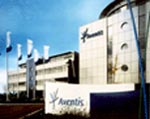Sanofi-Aventis
Taps New Jersey
for U.S. HQ, 3000+ Jobs
by JACK
LYNE, Site Selection Executive Editor of Interactive Publishing
 |
 |
| This year's $65.6-billion merger of Sanofi-Synthelabo and Aventis created the world's third-largest drug maker. The big question then became where Sanofi-Aventis would site its U.S. headquarters. |
BRIDGEWATER, N.J. and PARIS
— Sanofi-Aventis www.sanofi-aventis.com),
the French firm that became the world's third-largest drug maker with
this year's mega-merger, has decided to site its U.S. headquarters in
Bridgewater, N.J. (www.somersetbusinesspartnership.com).
The headquarters choice means that New Jersey
officials are no longer waiting to exhale. Sanofi-Aventis' decision
on Sept. 24th ensures that all of the more than 3,000 jobs that the
former Aventis Pharmaceuticals had in Bridgewater prior to the merger
will stay put. In addition, Sanofi-Aventis' decision means that the
merged firm will be relocating what will likely be a sizable number
of high-end jobs to Bridgewater. Many of those positions will come from
the pre-merger U.S. headquarters of Sanofi-Synthelabo, which is buying
Aventis for US$65.6 billion in stock and cash. The acquiring firm's
U.S. base in New York City has about 600 employees.
Both Sanofi-Aventis and state officials have
maintained very low profiles in publicizing the project. That reticence
likely stems in part from the fact that the merger must still be approved
by the United States Securities and Exchange Commission (SEC at www.sec.gov).
Sanofi-Aventis will likely give its headquarters
choice more publicity when the SEC's approval is secured. New Jersey
at that point may possibly also announce what are expected to be hefty
subsidies for the merged
company's headquarters.
A Major Factor in Headquarters Choice
Sanofi-Aventis officials did disclose that the site-selection choice came down to either New Jersey or New York.
Which of those two states would land the U.S. headquarters had been the subject of strong speculation since
 |
 |
| Aventis' U.S. headquarters
complex in Bridgewater (pictured at right) will be getting some
of the 600 jobs that are now at Sanofi-Synthelabo's U.S. base
in Manhattan. (center building in photo at left). |
|
Aventis' very large real estate portfolio in Bridgewater was undoubtedly a major factor drawing the post-merger pharmaceutical powerhouse to New Jersey. Several years ago, Strasbourg, France-based Aventis established a 400,000-sq.-ft. (36,000-sq.-m.) headquarters in the Garden State township; it has as an R&D campus and other office space there as well. Altogether, Aventis occupies almost a million sq. ft. (90,000 sq. m.) in Bridgewater.
In contrast, Sanofi in its pre-merger incarnation lacked a sizable U.S. presence. Other than its comparatively small U.S. headquarters in Manhattan, the company's American operations are largely sales branches scattered around the country.
By choosing the New Jersey site, the merged operation avoids the sizable outlay of acquiring new U.S. headquarters space.
Sanofi to Sweeten Takeover Bid
Aventis was a reluctant takeover target. The company fought the union with Sanofi for months.
At one point, Aventis even successfully persuaded Swiss drug heavyweight Novartis to enter the bidding war.
The job outcome in New Jersey would've been far different had Novartis been successful. The Swiss firm also has a large presence at its U.S. headquarters in Summit, N.J., some 27 miles (43 kilometers) east of Bridgewater. Industry analysts predicted that an Aventis-Novartis merger would produce multiple functional overlaps, triggering major cutbacks in the merged firm's work force in the Garden State.
Novartis, however, later dropped out of the merger bidding for
 |
 |
 |
| With popular drugs like allergy medication Allegra, sleeping aid Ambien and antibiotic Ketek now under one corporate umbrella, Sanofi-Aventis has $26 billion in annual revenues. |
French officials reportedly urged Sanofi in April to sweeten its bid for Aventis. At that point, Sanofi hadn't budged from its initial $60-billion bid in January. Similarly, Aventis officials hadn't altered their original public insistence that their company would be stronger as a separate entity.
Talks between the two firms resumed, though, after Sanofi raised its bid to $65.6 billion. Sanofi's successful offer gives Aventis shareholders five Sanofi shares and $150 in cash for every six shares in Aventis.
Novartis responded on April 24th by releasing a statement announcing its withdrawal from the bidding. The pullout, the company explained, came "following Aventis' decision to engage in discussions with Sanofi [due to] the strong intervention of the French government."
French Minister Jean-Pierre Raffarin praised the Sanofi-Aventis union, saying that it "will allow the preservation of decision centers and jobs in France and Europe, and is in line with a strategic interest."
Some observers, however, weren't so sanguine about the merger outcome. France's intervention miffed Novartis' Swiss owners, as well as Aventis' German shareholders.
Citizens for Voluntary Trade (CVT at www.voluntarytrade.org), an Arlington, Va.-based nonprofit group focused on antitrust and competition policy, was particularly outspoken in its merger criticism.
"The Aventis-Sanofi merger is the product of racism, pure and simple," charged Skip Oliva, CVT's president and founder. "The French government decided they wanted an all-French drug company, and used the power of the state to keep out a potentially superior offer from a Swiss company located 300 yards (273 meters) from the French border." France's actions, he contended, violate European Union (EU) treaties calling for a single European economic market.
Many industry observers, however, feel that antitrust issues are the merger's only major European concern. And Sanofi's agreement to sell
 |
| New Jersey's large pharmaceutical cluster includes the headquarters of Johnson and Johnson (pictured) Photo: Pei, Cobb, Freed & Partners (www.pcfandp.com) |
Oliva also urged American officials to take a stronger antitrust stand with the EU.
"The Bush administration must end its current policy of antitrust appeasement," he asserted. "The EU disregarded bilateral antitrust agreements in imposing the Microsoft fine [for misusing the "near-monopoly" of its Windows operating system], and now France is disregarding the same EU law Microsoft is expected to follow. The U.S. government needs to stand up for the rights of Americans by ending all cooperation with the EU until the Europeans learn to follow their own rules."
Antitrust considerations aside, most pharmaceutical analysts see the merger as a blending of complementary strengths.
Aventis, on one hand, brought its far larger U.S. presence to the corporate altar. The company's American operations include a manufacturing plant in Kansas City, Mo., and an R&D headquarters in Malvern, Pa. (Both will remain at their present locations, Sanofi-Aventis has announced.) Sanofi, on the other hand, has considerably more new drugs in the pipeline.
Sanofi needed a major merger of some sort to avoid becoming a takeover target. A shareholder agreement between L'Oreal and French oil group Total is set to expire on Dec. 2 of this year. Together, the two companies own 44 percent of Sanofi. And Total has already said that it wants to sell its ownership share, as pharmaceuticals aren't one of the company's core businesses.
Additional BEIP Grants
Sanofi-Aventis hasn't announced how many of Sanofi-Synthelabo's U.S. headquarters jobs will be relocated to Bridgewater, 45 miles (72 kilometers) west.
The merged firm's inordinately brief release on its U.S. headquarters choice said only that "some central services will be maintained in New York City." The company's statement added that "most" job-holders at Sanofi-Synthelabo's U.S. headquarters "will be offered a position at the new group." Company officials have said, though, that combining the two headquarters staff would create some job redundancies.
Sanofi-Aventis' final U.S. headquarters job count will determine the state's tally for project incentives. Aventis was earlier awarded state incentives that will total $24.5 million over 10 years. Those subsidies are coming from two job-creation grants from New Jersey's Business Employment Incentive Program (BEIP at www.state.nj.us/njbiz/r_beip.shtml). The BEIP initiative awards 80-percent rebates of personal income taxes collected on new in-state jobs.

The headquarters decision means that Sanofi-Aventis will receive supplemental BEIP grants for all the additional jobs it adds in Bridgewater. In addition, those new jobs will likely qualify for sales tax exemptions from the state's Business Relocation and Retention Assistance Grant program.
Finally, the merged firm may meet the guidelines for new BEIP benefits that were legislatively approved earlier this year. Those new subsidies extend grants for companies that retain existing jobs in New Jersey rather than relocating them out of state.
Sanofi-Aventis' new jobs will add to a New Jersey pharmaceutical cluster that spurred the state's nickname as "the nation's medicine chest." In addition to Novartis and Sanofi-Aventis, pharmaceutical companies with U.S. or world headquarters in the state include Merck and Johnson & Johnson.
| CONTINUE TO THE LATEST EDITION OF “TOP INCENTIVES DEAL” | |
| RETURN TO: SITESELECTION.COM
|
LOOKING FOR A PREVIOUS
STORY? CHECK THE ARCHIVE.
|
 PLEASE
VISIT OUR SPONSOR • CLICK ABOVE
PLEASE
VISIT OUR SPONSOR • CLICK ABOVE 
©2004 Conway Data, Inc. All
rights reserved. Data is from many sources and is not warranted
to be accurate or current.